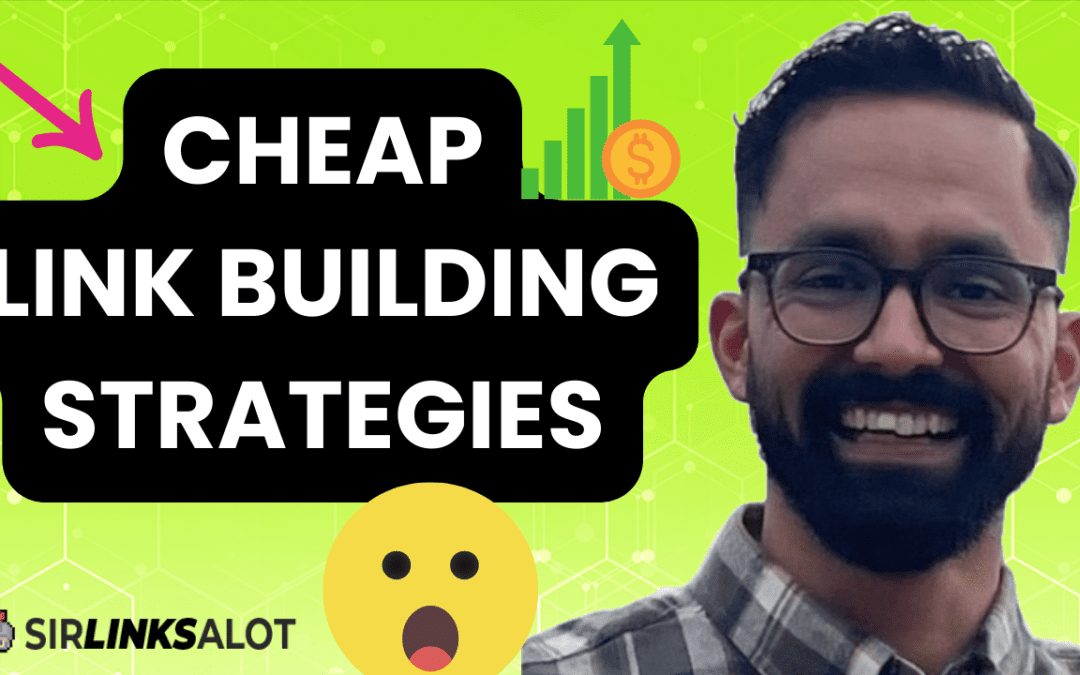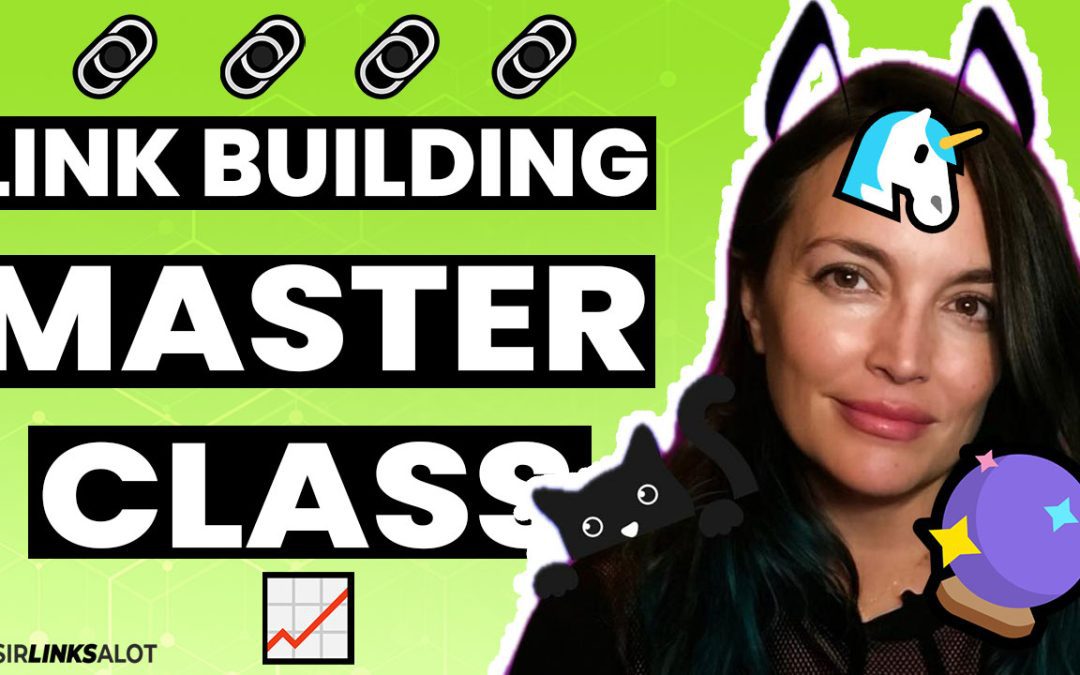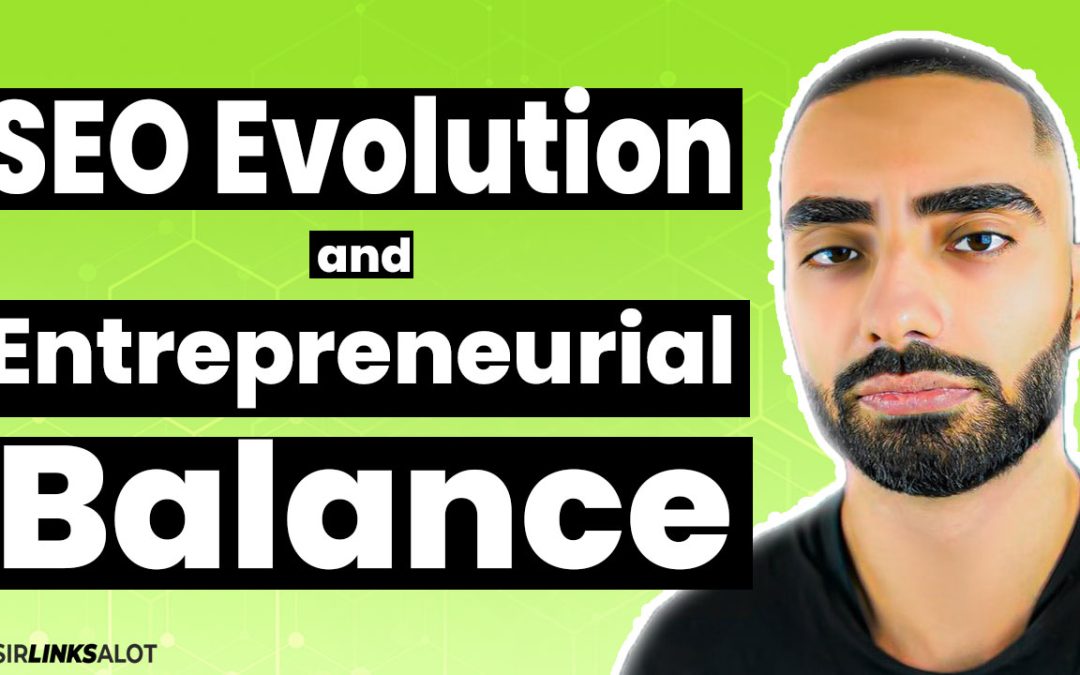Robert Niechciał is the CTO of Vestigio, has almost two decades of SEO experience, is the #1 SEO in Poland, and recently gave a talk at the SEO Mastery Summit in Saigon on artificial intelligence that we were very inspired by.
In this episode of SirLinksalot’s SEO Podcast, we dive deep into the nitty-gritty of how AI is reshaping the world of SEO, a topic Robert is particularly passionate about. We unpick his insights from his recent summit talk and delve further into the fascinating intersections between AI and SEO, how he uses ChatGPT, and more.
Think you’d be a great addition to our podcast, or have a request for someone to be featured? Head over to our podcast discovery page.
Watch the Podcast:
Podcast Summary:
[21:52] How do you use AI in your work today?
In our agency, we use AI for content planning, for content briefing, and for outlining and drafting content. We can validate content based on a few prompts, giving us proof that it’s good to publish and whether it will rank or not. We are playing with some sort of clusterization based on AI because these older models have perfect embedding possibilities. So we’re trying to embed the keywords and the distances and then trying to cluster the topic, followed by content briefing, planning, etc. We’re trying to extend the options in Google Sheets: There is a plug-in for Google Sheets to extend all this sort of data and optimize them. That’s for my agency. As for my programmatic and content generation projects, I also use AI for content. Two days ago, I started the trick with the optimization of the table of contents because if you have a long-form article, AI won’t understand what is on the button, or the summarization will be about only some part of the content, not about the whole article. And if we play with tables of contents, the results are much better.
[26:05] How do you use AI to proofread content?
I use it to extract the key points and the value from the content. From a piece of content, we can ask some things about entities, the main point, key takeaways, etc. We can ask some typical questions based on this content and figure out how the language model understands the core message. We read articles via our human perception, but Google only has machine perception, so using AI allows me to optimize my content for machine perception.
[30:55] Which AI platforms do you use?
For quick stuff like proofreading my English, I go to ChatGPT. I’m also a fan of Playground.
[33:44] Is it true that Google penalizes you if the content is being written too fast?
The beginning is the most important period where Google is most likely to penalize you. You need to have a good strategy just to gain momentum or gain initial trust, and then you can expand on it. A few months ago, you could directly post a lot of content pieces on this sort of domain, and it was perfectly fine because the next spam drain would be in three months. But my latest tests show three weeks. It won’t index at the beginning to a few hundred thousand pieces, but then you will be penalized. So other strategies are to buy some sort of domain or website with around four years of history to increase the size of the trigger. That way, you’ll have a few months before you get penalized.
[38:49] Would you still get penalized if the content is good?
If you have too much content to index in a short time, there is that possibility. But ultimately, I think there is nothing wrong with AI content if it’s okay for the users. I just mentioned that you need to get the user traction before you can expand. If Google is getting good user signals, why would they need to ban or penalize you?
[43:39] With regards to AI content versus Google’s Helpful Content system, a lot of people say that AI content is not helpful content because it doesn’t add something new to the conversation. What are your thoughts on that?
It’s a hard question, but that’s a great point. Nowadays, large language models have data only up to 2021. So it’s not up-to-date. Google rather prefers brand new content or brand new information which will extend the knowledge base. It should be something of extra value, and it’s not possible to produce that based on models from three years ago. The solution for this is knowledge base creation and feeding and fine-tuning language models. I truly believe that if you give enough information and structure to your content, you won’t have a problem with Google’s Helpful Content system. You should also always add a human touch to the content, even if it’s only images. When in doubt, follow EEAT.
[52:10] What are your thoughts on AI detectors like Originality.AI?
It’s irrelevant to me because Google doesn’t care if the content is AI-generated or not. As long as the user likes it, it’s good content. And with programmatic websites, it’s only intent that matters. If a user is searching for the locations of ATMs in Nashville, Google is perfectly okay with the AI content because the user doesn’t want to read it. They need just the address of the nearest ATM.
[57:30] One of the things you talked about was that it’s common sense for SEOs to do good internal linking to make sure their articles are actually quality stuff. Do you have any other tips for indexation if you’re adding a good amount of AI content?
There are a lot of obvious ones, like domain history, crawl, budget, structure, internal linking, etc. But what works for me is just indexation API. I know the limitations, that there are only 200 URLs per day, but that you can multiply it by adding additional API keys to Google. That brings the limitation of 200 up to a few thousand. We use our own custom-made software to do this.
[59:37] Are you doing any link-building campaigns?
In our agency, we have normal link-building campaigns and normal link-building budgets, and we grow and place links. But for programmatic SEO, I truly believe it’s not worth it to invest in links because one link in the United States would cost around $500. The thing is to buy the perfect domain at the beginning, which is the hardest part because you can’t control the history of a domain, including possible bans and penalties it’s had in the past. But I truly believe that’s the only way to grow.
[1:06:02] Now that we’re in this AI content race where the playing field is leveled, how do you think Google is going to deal with it? And more specifically, do you think they’re going to weigh user signals more heavily?
In the following months, we can expect the inflation of content. The thing is, Google won’t pay the cost of retrieval of random content. So we already mentioned the planning, the process, contextual content, semantics, etc. But I’m 100% sure that Google will place more value on user signals. We don’t know how to measure it, but I’m 100% sure it will happen. In fact, I think it has already happened. But for sure, in the future, we will need much bigger ranking signals. Virality doesn’t matter in the long run. You need to prove your value and your traffic, and your signals consistently if you want to continue to rank high.
[1:11:49] Where are we on the AI adoption curve now?
As the accuracy and output of AI models continue to improve, and AI gets adopted by Booking.com, Expedia, Wikipedia, and other huge sites, we’ll experience an even bigger shift than we did just a couple of months ago. There’s a lot of interest now, but interest is not the same as adoption. Time will tell how things will really play out.
[1:23:53] What are your thoughts on the future of the SEO industry now that AI is here?
I think we need to adjust. That’s it. Guys who won’t adjust or even try to understand AI will be terminated in the long run. We in the SEO industry have survived a lot of Google updates in our history, so we understand the process of change. There is something new around the corner every quarter, and there are a lot of guys who adjusted to it, who understood it, who know the name of the game, and who played the game. And I know a lot of guys who haven’t adjusted, and they are now out of SEO.
[1:27:51] For the newer person, or for the person who’s not as established in SEO right now, what advice would you give them as far as succeeding in SEO in 2023? What direction should they go in?
The biggest difference maker is the context, content, construction, and structure of your websites. Instead of buying the same links as your competitors do on a daily basis, get creative. There will be an inflation of content on the internet. And not only content but also structures, context, semantics, and everything. If you build yours better than your competitors, you will win the SEO game. The way you interpret data as a human will be different from how a machine interprets data. Use that to your advantage if you want to rise above the noise.



